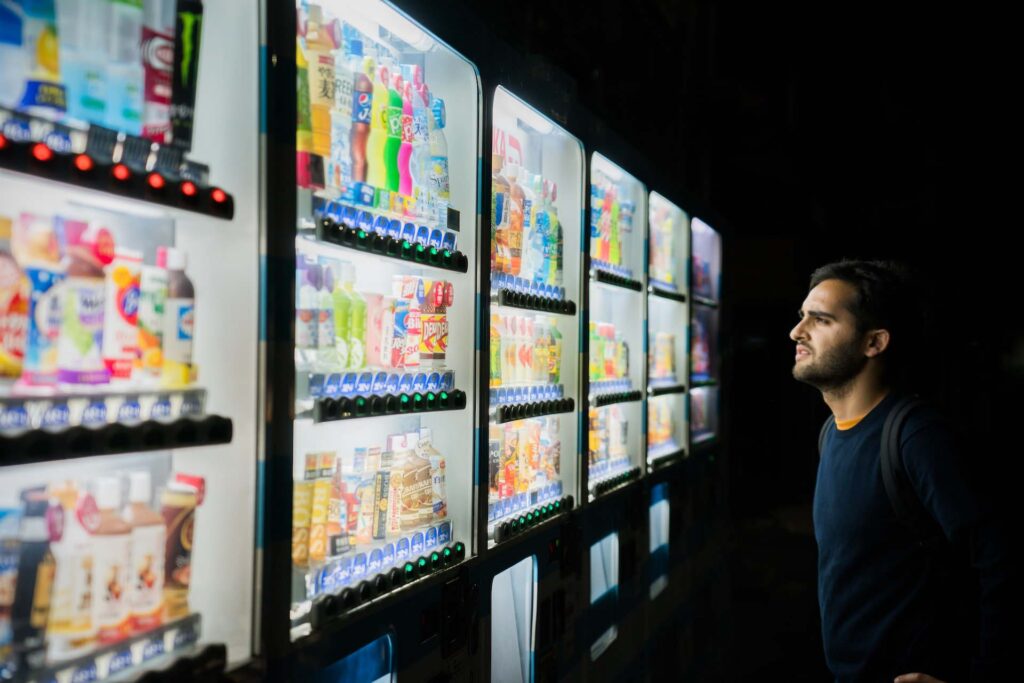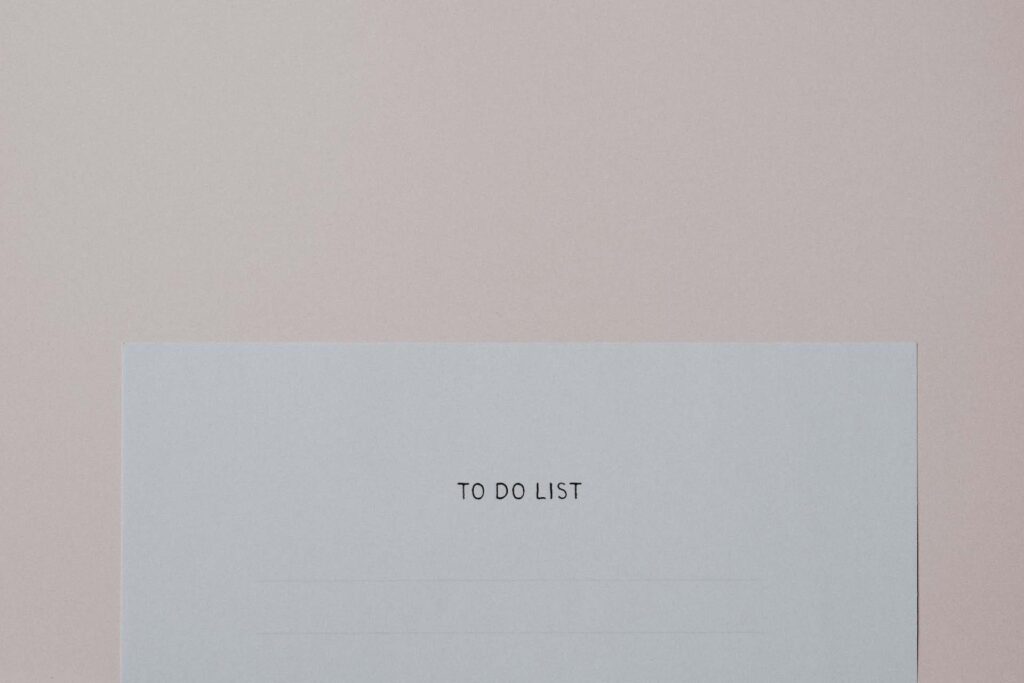In this article, we see how to be more efficient: in work, school, personal situations, and life in general. Efficiency is “getting the most out of a resource”. That resource can be anything: your own time, money, your ability to stay focused (which might be limited), or any other resource that you have. If you want to know how to be more efficient, you really want to know how to achieve more, with less. Let’s see how we can do that.
In this article, we will see how to be more efficient in general. In other words, we will consider the most common resources everyone has within limits: time and energy to do things. This framework, by extension, can apply to being efficient with any resource.
Now, if you make a few online searches, you will always find cheap (and not-so-cheap) websites claiming the new futuristic best tip to make you more efficient. Yet, they do not provide data or research to back their claim, and when they do they tend to do it somewhat poorly. Not in this case, here we base all our findings on peer-reviewed scientific research.
I didn’t do any of that research myself. In this article, I just gather some great stuff on how to be more efficient, and package them in a way that is easy to read and more entertaining that the average scientific paper. Let’s get down to this!
How To Be More Efficient
Effective Decision-Making
Our decisions can have a big impact in our lives. This is true for both life-changing once-in-a-lifetime decisions as well as smaller decisions you make daily without even thinking about it. When in a rush you choose an unhealthy prepackaged meal as opposed to a healthy one you would make yourself, you are making a choice that will have consequences in the future (provided you do it often enough).
To me, effective decision making comes down to two things:
- They choose the course of action that brings you closer to your long-term objectives
- The decision-making process does not drain all your energy
Amazing, but how to be more efficient in that sense? A 2008 article on Scientific American claims that making decisions consumes mental energy. As your brain power gets depleted, your effectiveness in making decisions decreases. Like a muscle, after you used your brain, you need to make it rest.
Research went even further in 2010 with a paper by Auburn University and University of California (San Diego). In this research it was found a clear relationship between an increased load of cognitive demand and impulsive decision-making. In other words, the more you load your brains with decisions to make, the more some of them will be impulsive. This study, however, was conducted on patients with brain damage, and on people with precedents for substance abuse. As the abstract clearly states, it is unclear if those findings can be extrapolated onto the public at large.
To summarize all this research for our purposes:
Your mental power to make decisions is limited. You need to choose carefully where you use it.
To do this, you need to avoid completely (or at least limit) making decisions when doing so adds no value to your life. This is done by habit: things you perform automatically, almost without thinking. A few examples:
- Deciding every day what to eat consumes mental power. Create a meal plan over 1-4 weeks and then just buy and eat what is in the plan, without thinking.
- Deciding if it is time to do some chores (e.g., mowing the garden) might consume power as well. Plan a schedule for doing the things that are not done so often.
- Preparing your tax filings may consume energy even if it is not strictly a decision-making process. Offload this burden to someone by hiring a CPA.
- When doing grocery shopping, thinking about what you need consumes energy. If you arrive to the supermarket with a proper list of things to buy and focus on that, it will be easier.
In general, try to avoid decision-making in favor of habits for every routine and mundane task of your day. Sometimes, this may sound a little bit too much. For example, Mark Zuckerberg always wears the same clothes so that he does not have to decide what to wear. He found something he feels good wearing, and now has his wardrobe filled with that. This may be a little too much for the average Joe looking how to be more efficient.

However, there is something we can learn from Zuckerberg’s experience. Deciding what to wear is something that consumes willpower. If you want to change what you wear, decide it the night before. The idea here is simple: your mental power depletes during the day; it starts high in the morning, and it is reduced a little bit by every single decision. So, use your brain in its best shape to make important decisions, and delay trivial ones at the end of the day. If you pick your clothes the night before, you do that with the tired brain, and the next morning you will have your powerful brain ready for something else.
Another approach you can use to reduce the drag caused by decision-making is having tenets. A tenet is a principle you can use to guide your decision. It is a decision you make in advance about tradeoffs, so that when it comes time you can just look at the list of tenets and decide based on how they guide you. For example, a tenet might be “I value growth over tranquility”. When it is time to decide whether to change job for a more challenging one, you will switch because you know what is the action that aligns to your tenet.
Amazon uses tenets in their teams, and sometimes they even publish some of them online like this one. This approach is also similar to the one advocated by Ray Dalio in its book Principles.
No Multitasking
Probably you have been told this already: multitasking is bad for you. In terms of efficiency, there is a huge body of evidence that states without doubt that multitasking reduces performance. Unlike the stereotype, women suffer as much as men when multitasking.
This interesting study by Thomas Buser and Noemi Peter (2012) even shows that multitasking reduces performance when it is imposed, as well as when it is chosen. So, whether you choose to switch from a ask to another, or if it is your boss distracting with “do it now” emails, the effect is the same. You will be worse off in both cases in the same way than if you were focusing on a single thing. If you decide for yourself to multitask, you will feel more productive, but you actually won’t be in terms of results.
This March 2015 paper shows how multitasking is bad for learning, this other shows how multitasking with mobile devices correlated with poor sleep and emotional functioning. Yet, the best paper on why multitasking is bad is this one by Kevin P. Madore and Anthony D. Wagner (2019). It shows at neurological level why multitasking is a bad idea for your productivity. You can read the full paper, and I encourage you to do so, but long story short the physical structure of the brain and the way neurons are arranged is not designed to do two or more tasks in parallel.
So, next time someone tells you (or even you think about yourself) “but I am a multitasker”, just know the brain is actually not physically wired that way. So, it all ends up to be inflated self-perception.

How to be more efficient in regards to multitasking? You need to create an environment that protects you from multitasking. The things you can do are virtually endless, but here are the most common:
- Silence your phone, put it in another room, block and prevent any notification from distracting you
- If the work you are doing is not online and connected, consider shutting down your Internet access (e.g., airplane mode, switching off the router etc.)
- Set a timer for a given task, then do not allow yourself to do anything else until that timer expires. Not even go get some water or to the restroom. If you can’t focus, just stay there and patiently wait for your timer to expire. Soon, your brain will realize it prefers to stay focused and not bored in the wait.
- Take breaks at specific times to mark a distinction. You want to allow a few minutes for your brain to pause, in a slot that is limited and does not impact your productivity. Avoid activities that suck you down the rabbit hole with a “what’s next mindset” such as YouTube auto-play or infinite scroll of social media. If you really can’t stay away from these things, put a timer and when it rings shut down any app immediately. Not at the end of the video, not after reading the post. Right now.
Hopefully, this important tip on how to be more efficient can help you have more success in whatever you want to do.
To be fair, multitasking done before another task can bring some more creativity into that task. However, multitasking on that task will impair the performance and will not increase creativity. Even if this is true, in this article we are focusing in how to be more efficient, not on how to be more creative.
Be Accountable
If you want to know how to be efficient, a key ingredient is accountability. I mentioned this at the beginning: efficiency is doing more with less. How do you know if you are accomplishing this or not if you actually don’t know what you are accomplishing, and with what resources you are accomplishing it.
No, you need to be accountable. This means committing in advance on what you want to do in a realistic way, and then assess if you met your commitments or not. How to actually do it varies person to person and treating all techniques and tactics will take much more than a dedicated article – maybe a book. Some people like to take a physical agenda where they can write, other use online calendars, yet others use to-do lists, or even Gantt charts.
What I can share with you is a general process I personally apply.
- Every 6 months, I think about my long-term objectives and what can I do in the next six months to get me closer to that. I write down a document with the priorities for the next six months.
- Every month, I review such documents and update to add the progress on each priority, log challenges and lessons learned in the process. I never change the goals or add new ones, I just add information about their status.
- Every week, I read the document without making changes. Then, I consider this to allocate productive time for the coming week: how many hours I want or can spend on each of the projects and priorities I am working on. Then, based on this time, I create a to-do list for each single day of the week. I do this on Sunday for the coming week.
This works for me and helps me keep the daily work in line with my long-term objectives. For you, something different may work, or you may need different tools (I use Microsoft Word, Google Calendar, and Microsoft OneNote).

Then of course, every day I tick the completed items in the to-do list and archive the to-do list for the day (always in OneDrive) making comments about what I have accomplished and what I haven’t.
How To Be More Efficient in Summary
Being more efficient is about making good decisions, avoid multitasking, and hold yourself accountable to what you commit to do. If you want to be more efficient, you can simply start by following this science-based tips, and then adjust them based on your specific situation.
Now continue learning. If you wanted to know how to be more efficient, you may want to know how to effectively delegate with a RACI Matrix, read it here.